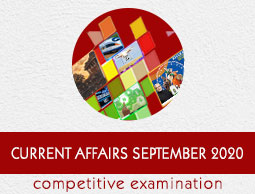
- Appointments
- Awards
- Bills & Acts
- Books & Authors
- Committees
- Deaths
- Defence
- Economic
- Environment
- Finance
- Important Days
- International
- Miscellaneous
- National
- Persons in News
- Places in News
- Regional
- Reports
- Resignations & Retirements
- Science & Technology
- Sports
- September 2020 - Exams Resources
- Current Affairs - Quiz
- Current Affairs - Test
- Current Affairs - PDF
Current Affairs September 2019 - Economic
1 - Record 49.29 lakh e-returns filed in a single day on 31st August 2019

The Income Tax department has made history with a quantum jump in the e-filing of IncomeTax Returns (ITRs) with an all time high record of 49 lakhs 29 thousand and 121 ITRs filed in a single day on 31st August 2019.
On 31 August, 2019, the peak filing rate per second was at 196 ITRs and peak filing rate per minute was at 7,447 ITRs, while peak filing rate per hour was at 387,571 ITRs.
2 - GST collection up 4.51% in August at Rs 98,202 crore

The gross goods and services tax (GST) collection in August, 2019 stood at Rs 98,202 crore, up 4.51% compared to Rs 93,960 crore in August 2018. Of the total collection, CGST is Rs 17,733crore, SGST is Rs 24,239crore, IGST is Rs 48,958crore (including Rs 24,818 crore collected on imports) and Cess is Rs 7,273 crore (including Rs 841crore collected on imports). The total number of GSTR 3B Returns filed for the month of July up to 31st August, 2019 is Rs 75.80 lakh.
The total revenue earned by Central Government and the State Governments after regular settlement in the month of August, 2019 is Rs 40,898 crore for CGST and Rs 40,862 crore for the SGST.
3 - Mukesh Ambani rolled out JioFiber
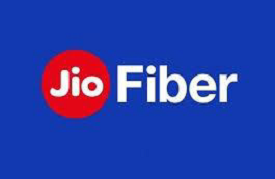
Reliance Jio Infocomm has commercially launched its wired broadband service JioFiber. It offers high-speed internet, landline phone and HD television. Broadband services offer a minimum internet speed of 100 Mbps with plans starting at Rs.699 per month for 100 GB, while higher plans come with freebies like high definition television (TV) sets and set-top boxes.
Jios offer is a game-changer that poses considerable threat to DTH service providers such as Airtel Digital TV, Tata Sky and Dish TV.
4 - CRISIL revised India's GDP growth to 6.3% in fiscal 2020

Crisil Research revised downwards its India Gross Domestic Product (GDP) growth forecast for fiscal 2020 to 6.3% from earlier estimation of 6.5% due to less domestic private consumption demand, slump in manufacturing and halving of merchandise exports growth. Fiscal 2020s first quarter gross domestic product (GDP) growth was estimated at 5%, the slowest in 25 quarters.
The sharpest dip was seen in exports, where growth nearly halved to 5.7% from 10.6% in the fourth quarter of fiscal 2019. The sharpest slowdown was in the real estate, financial and professional services segment, which slipped to 5.9% from 9.5%.
5 - Wipro bagged $300-million deal from ICICI Bank

IT Major Wipro signed strategic seven-year deal valued at $300 million from ICICI Bank to provide a suite of digital services. With the help of this deal, Wipro HOLMES, the company's Artificial Intelligence platform will provide differentiated technology and digital capabilities to ICICI bank.
Wipro entered into a business transfer agreement for an all cash consideration of Rs 321 crore, with Vara lnfotech, who was presently providing the IT services to bank. ICICI Bank will get these services from September 2019.
6 - India among top 10 nations in gold reserves

According to the World Gold Council, India has pipped Netherlands to move into the list of top ten countries in terms of total gold reserves. India has a total of 618.2 tonnes of gold reserves while Netherlands has 612.5 tonnes.
US tops the list with 8,133.5 tonnes followed by Germany with 3,366.8 tonnes. IMF ranks third in the list with a holding of 2,451.8 tonnes. Italy (2,451.8 tonnes), France (2,436.1 tonnes), Russia (2,219.2 tonnes), China (1,936.5 tonnes), Switzerland (1,040 tonnes) and Japan (765.2 tonnes) complete the top ten list.
7 - IFC signed MoU with FIDC for training NBFCs
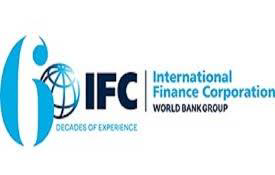
International Finance Corporation, a part of the World Bank Group signed a MoU with the Finance Industry Development Council (FIDC), a representative body of asset and loan Financing NBFCs, to collaborate on training of NBFCs on topic of Commercial Credit Reporting. The training is aimed at building capacity of NBFCs to enhanced reporting and enquiring on Commercial Credit Information Data from the Credit Bureaus.
MoU will facilitate more informed credit appraisals thereby improving the asset quality and improve large number of small and medium sized NBFCs.
8 - Government announced fresh incentives to boost exports and housing sector
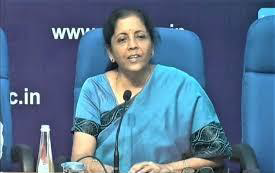
Finance Minister Nirmala Sitharaman has announced a fresh set of measures worth 70,000 crore rupees to boost exports and housing sector. The government will provide a 10,000 crore rupees special window with an aim to help complete ongoing affordable and middle-income housing projects.
The other key incentives include extending the scheme of reimbursement of taxes and duties for export promotion, fully automated electronic refund for Input Tax Credits (ITC) in GST, revised priority sector lending norms for exports and expanding the scope of Export Credit Insurance Scheme (ECIS).
9 - Government announced scheme for Remission of Duties or Taxes on Export Product
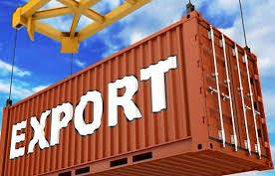
In a bid to boost the economy, the government has formed an inter-ministerial working group to monitor export finance. Accordingly, the scheme for Remission of Duties or Taxes on Export Product (RoDTEP) was announced which will replace Merchandise Exports from India Scheme (MEIS) for textiles. In effect, RoDTEP will more than adequately incentivise exporters than existing schemes put together.
Textile and all other sectors which currently enjoy incentives up to 2 per cent over MEIS will transit into RoDTEP from January 1, 2020.
10 - ECGC Introduced Nirvik to Enhance Loan Availability for Exporters
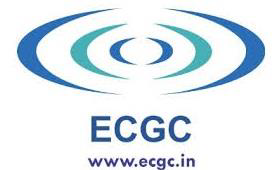
Ministry of Commerce & Industry throughExport Credit Guarantee Corporation (ECGC) has introduced a new Export Credit Insurance Scheme (ECIS) called NIRVIK to enhance loan availability and ease the lending process. The ECGC cover provides additional comfort to banks as the credit rating of the borrower is enhanced to AA rated account.
Enhanced cover will ensure that Foreign and Rupee export credit interest rates will be below 4%and 8% respectively for exporters. Under ECIS, insurance cover percentage has also been enhanced to 90% from the present average of 60% for both Principal and Interest.
11 - Commerce and Industry Minister launched Steel Import Monitoring System
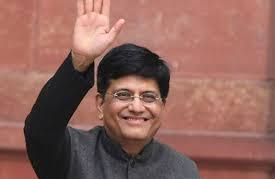
Union Minister of Commerce & Industry and Railways, Piyush Goyal launched Steel Import Monitoring System (SIMS) in New Delhi. The system has been developed in consultation with Ministry of Steelon the pattern of US Steel Import Monitoring and Analysis (SIMA) system.
The SIMS will provide advance information about steel imports to Government and stake holders including, steel industry (producers), steel consumers(importers) to have effective policy interventions. In this system, the importers of specified steel products will register in advance on the web portal of SIMS providing necessary information.
12 - Commerce and Industry Minister launched Common Digital Platform for Issuance of Electronic Certificates

Union Minister of Commerce & Industry and Railways, Piyush Goyal and Minister of State for Commerce & Industry, Hardeep Singh Puri, launched Common Digital Platform for Issuance of electronic Certificates of Origin (CoO) in New Delhi. This platform will be a single access point for all exporters, for all FTAs/PTAs and for all agencies concerned. Certificate of Origin will be issued electronically.
Benefits include
Real-time tracking of FTA utilization at product level, country level etc.
Possible to electronically exchange CoO with the partner countries.
Reduces transaction cost and time for the exporters.
13 - Wholesale price-based inflation unchanged at 1.08% in August

Wholesale price-based inflation was unchanged at 1.08% in August. The increase in prices of certain food items was partially neutralised by static prices of manufactured goods during August 2019. The Wholesale Price Index based inflation was 1.08% in July 2019 and 4.62% in August 2018.
Inflation in food articles rose to 7.67% during the month as against 6.15% in July mainly on account of rise in prices of vegetables and protein-rich items. The retail (CPI) inflation in August rose marginally to 3.21% as against 3.15% in the previous month mainly due to costlier food items.
14 - Government scrapped 5 % import duty on open cell TV panel

In a bid to boost domestic manufacturing, the government has removed 5% custom duty imposed on import of open cell (15.6 inch and above) for use in the manufacture of Liquid Crystal Display (LCD) and Light Emitting Diode (LED) TV panel. The move would also help to reduce the price of TV panel by around 3%.
The government has also waived custom duty on import of Chip on Film, Printed Circuit Board Assembly and Cell (glass board or substrate) which are used to manufacture open cell TV panels.
15 - Government allows SAIL to sell 25% of iron ore output
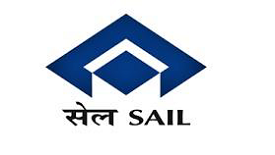
Ministry of Mines has allowed Steel Authority of India Limited, SAIL to offload in a year up to a quantity equivalent to maximum 25% of total iron ore production in the previous year. It will be subject to clearance from the respective State Governments, where the mines are located, after following due procedure. It is valid for a period of 2 years.
Around 7 Million tonnes of iron ore, produced at its different mines in the States of Jharkhand, Odisha and Chattisgarh, can be offloaded by SAIL to the domestic market.
16 - BEML signed MoU with Wipro Infrastructure
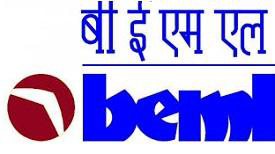
BEML Ltd and Wipro Infrastructure Engineering (WIN) signed a MoU to work together in Aerospace, Industrial Automation, 3D Printing, Artificial Intelligence and Hydraulic System Engineering.
The MoU entails working together on projects, products, systems, services and projects in Defence, DRDO labs, DPSUs and other relevant government entities in India as well as export customers. Key focus areas include aerospace components and parts through SEZ, metal additive manufacturing and design optimisation for new critical aggregates, legacy components & spares, and process automation.
17 - Government cuts corporate tax rate for domestic investors

Government has cut the corporate tax from nearly 35 to about 25% for domestic investors. Also, such companies shall not be required to pay Minimum Alternate Tax.
Under the new provision a new domestic company incorporated on or after 1st October 2019 making fresh investment in manufacturing and commences their production on or before 31st March, 2023, will have to pay income tax at the rate of only 15%. Finance Minister has also announced the government decision to expand the scope of 2% CSR spending.
18 - Google announced new AI research lab in Indias Bengaluru

Google announced Google Research India, an artificial intelligence (AI)-based research lab to be set up in Indias Bengaluru. The Indian AI lab will be led by Dr. Manish Gupta, a SEM (Society for Experimental Mechanics) scientist in the country.
Google already has various AI research labs across the world, under its Google AI arm. The Bengaluru lab will be the first in India. AI-based lab will create products not just for India but for the rest of the world.
19 - Telecom body approved Rs 8500 crore for mobile towers & optical fibres

Digital Communication Commission, the highest decision making body in the Department of Telecom has approved multiple projects worth over Rs 8,500 crore for setting up 1917 mobile towers and laying of optical fibre in the North East uncovered villages.
The projects include laying of BharatNet fibre in Tamil Nadu and Telangana, at an estimated cost of Rs 1,815 crore and Rs 2,065 crore. This includes 2,215 villages in Arunachal Pradesh and 763 villages in two districts of Assam.
20 - Ola drivers to get healthcare benefits under Ayushman Bharat
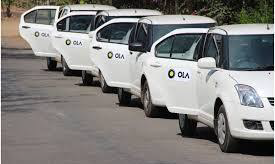
Ola, Indias largest mobility platform and Ayushman Bharat, Pradhan Mantri Jan Arogya Yojana (AB-PMJAY) announced a partnership to facilitate comprehensive health insurance for Olas 2 million driver-partners.
Through this collaboration, hundreds of thousands of eligible driver-partners will be able to access in-patient care for serious illnesses at a country-wide network of 18,073 government and private hospitals empanelled under PM-JAY. Driver-partners can get their AB-PMJAY e-cards issued at the nearest Ola office.
21 - Tata Communications partnered with Cisco

The leading global digital infrastructure provider Tata Communications and Cisco have extended their partnership to enable enterprises to transform their legacy network to a customised and secure multi-cloud native hybrid network.
The combination of Tata Communications IZO cloud enablement platform and Cisco SD-WAN is a fully-managed, global solution that gives businesses greater control over their digital infrastructure, the ability to securely connect any user to any application location and provide the assurance of application performance needed to support successful digital transformation.
22 - Wipro Consumer Care and Lighting sets up startup venture fund
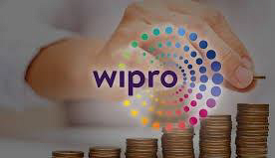
Wipro Consumer Care and Lighting has launched Wipro Consumer CareVentures, a startup venture fund to invest in startups in the consumer brands space. It will involve investment in companies of India and Southeast Asia that have "strong entrepreneurs" and startups with a "sound business model.
Wipro Consumer Care & Lighting has presence in 19 countries and is among the fastest growing fast moving consumer goods (FMCG) businesses in India.
23 - CBDT sets up NeAC
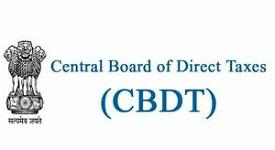
Government announced setting up of a national e-assessment centre (NeAC) in New Delhi to focus on e-assessment. The NeAC will be an independent office looking after the exclusive work of e-assessment headed by a Principal Chief Commissioner of Income-tax (PCCIT) as its chief.
1984-batch Indian Revenue Service (IRS) officer K M Prasad has been appointed as the chief or PCCIT of the new Centre. The initiative is a part of government efforts to reduce human discretion in assessments and scrutiny.
24 - ADB slashed India growth forecast to 6.5% for 2019-20

The Asian Development Bank slashed its growth forecast for India for fiscal 2019-20 to 6.5% from 7% projected in July 2019 owing to slowdown in consumption and investment activities, sluggish manufacturing demand and liquidity crunch. However, proactive policy interventions, Corporate tax cuts and recovery in domestic demand and investments will likely see the economy pick up to 7.2% in 2020-21.
ADB announced India to remain fastest-growing economies due to governments implementation in policy reforms.